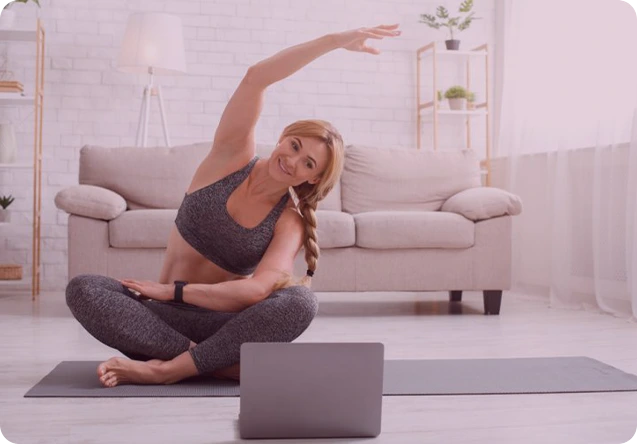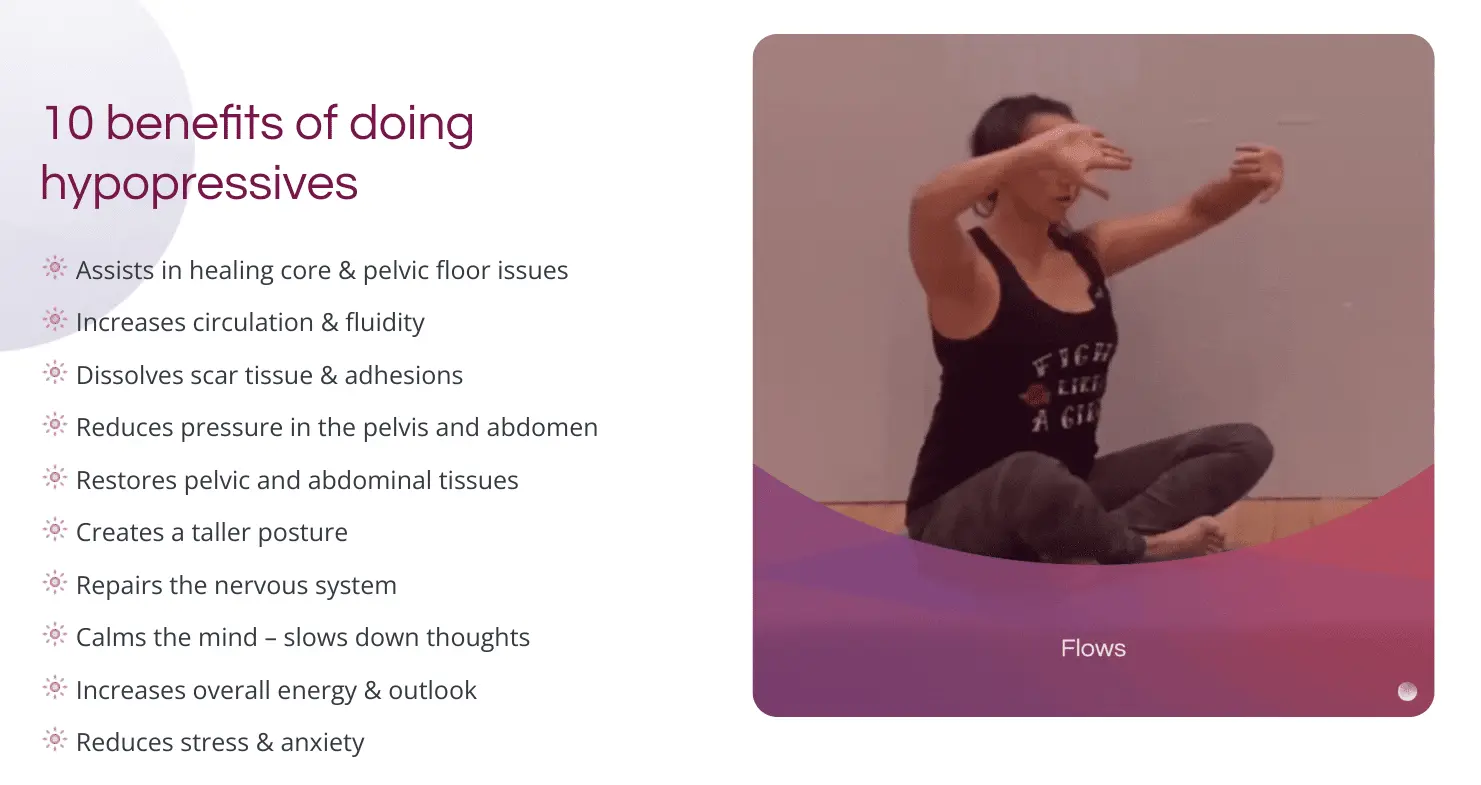Loose or Saggy Vagina? These tips can help – No Surgery
- June 9, 2022
- Vagina Health

Loose or saggy vagina: Some facts
First of all, your vagina will NOT get ‘loose’ from having too much sex.
If you were ever told this, it’s not actually true. The word “loose,” when referring to a woman condemns women for their sexual activity — specifically, for having multiple sexual partners.
Have you ever heard people say: ‘you can tell if a woman has been sleeping around by the way she walks or if she has a loose vagina or saggy buttocks’? These absurd misconceptions have sown seeds of shame, insecurity, and fear among women for “not being tight enough” for their partners. No wonder vaginal rejuvenation treatments have been popular for decades now.
Truth be told, your vagina is designed for penetration and childbirth, and also for snapping back into shape as if nothing happened!
In this article, we’ll discuss the possible causes of a ‘loose’ vagina and provide natural ways to keep it in good shape — without the need for surgery.
Why a loose or saggy vagina happens
Let’s start with the basics. A vagina is a muscular canal with elastic tissues. It tenses and relaxes to make way for blood (during menstruation), penis (during intercourse), and a baby (during labor).
Vaginal laxity (“looseness”) refers to the widening of the vagina and is often correlated with pelvic floor dysfunctions. But there are only three scientifically proven causes of vaginal laxity: aging, childbirth, and certain medical conditions.
1. Natural Childbirth
During normal labor, the vagina and the skin around it are stretched, to assist the baby out of the womb. But it’s not until after delivery that estrogen (a hormone that maintains the thickness of the vaginal wall and promotes lubrication) declines drastically.
Now, this is actually not a bad thing because too much estrogen might interfere with breastfeeding (which is a huge priority after giving birth). However, this might also affect the elasticity of the vagina (though not too much). It’s meant to return to its original state, but could take some time to get there.
During recovery, your vagina may also develop scar tissue, especially if there was an incision made during delivery. Scar tissue weakens the pelvic floor, which may lead to the development of prolapse (bulging into the vagina because of organs that have slipped down), incontinence (involuntary urination), and other pelvic floor dysfunctions but this does not mean you need a pelvic floor reconstruction as surgery comes with a lot of risks and unknowns.
2. Aging
Generally, our skin and muscles become less firm and weak as we age — the same is true with the vagina.
Hormonal changes become more evident during menopause. Estrogen drops substantially, making the vagina thinner, drier, less flexible, less acidic, and possibly itchy (also called vaginal atrophy) which explains why the vagina can feel “loose” for older women.
Shortly after menopause, the vagina becomes narrower and shorter, which may cause tearing and bleeding during sex. Ironically, experts suggest women keep their sex life active, to increase the vagina’s blood flow, length, and stretchiness.
3. Medical Conditions
In other cases, vaginal “looseness” is caused by existing illnesses (such as gynecological cancers), and traumatic injuries (from accidents, rough sex, or surgery).
Today, there are non-surgical vaginal tightening (rejuvenation) treatments using radio frequency, laser energy, and pills. But note that some of these businesses haven’t been completely honest with their results and most are still lacking clinically-based studies to confirm their effectiveness.
Bottom line, a tight vagina doesn’t automatically equate to a healthy vagina. The same way “looseness” isn’t a form of dysfunction.
8 Ways To Keep Your Vagina
In Good Shape
You see, all the factors that may cause your vagina to “become loose” are inevitable. Aging and childbirth are normal, and a beautiful part of life! But that doesn’t mean you can’t do anything to help yourself.
For starters, it’s crucial that you know how to take care of your pelvic floor. These muscles contract and relax to support your pelvic organs, bladder, bowel movements, and sexual activities — which your vagina is a part of.
Taking care of your vagina requires a holistic approach. Meaning, instead of tending to one part of your body, it’s better to improve your overall well-being because you’ll be stronger in the long run and more capable of healing anything.
1. Yo-Yo Dieting is a No-No
The Yo-Yo Diet (also called weight cycling) refers to the repetitive pattern of losing and regaining weight. This unhealthy, yet prevalent practice, causes the skin to stretch and sag compromising the elasticity not just of your vagina, but your breasts, and the rest of your body!
To avoid falling into this endless (and potentially harmful) cycle of yo-yo dieting, be consistent with your exercise routine, don’t skip meals, maintain muscle mass, and eat include enough high-quality proteins and fats in your day.
2. Stop Douching
Before diving into this one, let’s clarify that the vagina and vulva are two different parts of your genitals. The vulva is the external portion (inner and outer lips, clitoris, and opening) while the vagina is an internal organ.
Vaginal douching is a common way to “clean” the vagina using a liquid mixture to eliminate unpleasant smells, prevent pregnancy, wash out blood after menstruation, or avoid sexually transmitted diseases. But the thing is… the vagina is already a self-cleaning organ and none of the douching claims are proven to be true! In fact, douching messes up the vagina’s pH balance, which may lead to infections.
If you’re looking for a safer way to cleanse your vagina, try vaginal steaming instead.
3. Slow down with the feminine wash
Feminine washes are meant to be used to cleanse the vulva, not the vagina — just to be clear.
While it’s a good idea to wash the vulva, remember to stick with mild cleansers, but make sure you don’t overdo it either. Otherwise, it might cause dryness, irritation, and infection, which can become more problematic than vaginal “looseness”.
4. Replace Kegels with Yoga & Hypopressives
Kegels are a known pelvic floor exercise done through the repetition of contracting and relaxing your pelvic floor muscles. Despite their popularity, Kegels aren’t the best way to keep your pelvic floor healthy and in some cases, they might actually do more harm than good!
Yoga and Hypopressives are safer options because they’re both low-impact and low-pressure workouts. They focus on proper posture, better breathing, and help repair damaged fascia in your pelvic floor and vagina, to help heal a loose or saggy vagina.
You can try both of these healing methods in my Pelvic Floor Dysfunction Program.
5. Maintain a Healthy Diet
Wellness starts from within. So if you want to tighten your vagina, add healthy foods that are rich in phytoestrogens into your diet. Tofu, ground flaxseeds, edamame, legumes, nuts, and of course fruits and vegetables are great choices. And avoid caffeine, alcohol, sugary and processed foods.
6. Re-Think Long Bike Rides
Cycling can be beneficial for toning your hips and thighs, but it might also cause skin irritation, saddle sores, chafing, and ulcerations. Women who bike a lot are also more prone to vaginitis due to sweating inside tight clothes that can possibly promote the growth of yeast. On the outside, your vulva may look swollen and appear bigger after excessive biking.
If you’re experiencing any of these symptoms, seek medical help immediately.
7. Stay sexually active
Contrary to the misconceptions, sex can actually help prevent your vagina from becoming “loose.” Sex doesn’t only feel great, it’s also good for your heart, pelvic floor muscles, and vagina because it increases blood flow and elasticity.
8. Try Something New
The key is to try being on top during an intimate session with your partner. Being at the bottom may cause stretching while being “in control” on top will help you move (and contract those muscles) with the pacing you’re most comfortable with.
Can Vaginal Tightening
Make Sex Better?

It’s possible, yes.
But it really depends if having a tighter vagina makes you feel sexier, more confident, or more satisfied? Because after all, sex really is a personal experience based on the chemistry and relationship you have with the person you’re having sex with.
Having an emotional connection with your partner makes sex more pleasurable. Plus more women have orgasms from clitoral stimulation vs. vaginal stimulation.
But what if… “looseness” isn’t the real issue? What if it’s really something else?
For some women, a prolapse or other type of pelvic floor dysfunction could be the reason.
To know what the real cause is, sign up for my FREE Live Webinar to learn how prolapse & pelvic floor challenges play a role in “looseness” & how to heal them!
Women Helping Women
Talking about sex and vaginal health can be taboo in so many cultures and households.
That’s where we come in. At MoonRise, we discuss anything and everything related to female health. Nothing is taboo here.
We support you, listen to you, and help guide you back towards health & living a life you love!
Blog posts you might like:






